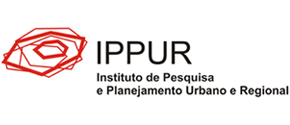Resumo em Inglês
Antonella MaielloProfessora Adjunta do Programa em Gestão Pública para o Desenvolvimento Econômico e Social do Instituto de Pesquisa e Planejamento Urbano e Regional (IPPUR) da UFRJAna Lucia Nogueira de Paiva BrittoDoutora em Urbanismo pelo Institut D'Urbanisme de Paris - Université de Paris XII (Paris-Val-de-Marne); Professora da Faculdade de Arquitetura e Urbanismo e do Programa de Pós-graduação em Urbanismo da Universidade Federal do Rio de JaneiroYasmim Ribeiro MelloDoutora em Urbanismo (PROURB-FAU), Universidade Federal do Rio de JaneiroPaula Sousa de Oliveira BarbosaMestre em Urbanismo pela Universidade Federal do Rio de Janeiro (PROURB/UFRJ). Pesquisadora do Laboratório de Estudos de Águas em Áreas Urbanas (LEAU/PROURB/UFRJ)Brazilian experiences of federative cooperation. Food for thought from a comparative study on inter-municipal consortia of basic sanitation
In Brazil, inter-municipal consortia, as a federative cooperation instances regulated by the Law No.11.107/2005, exist for more than ten years. However, there are still few studies related to the analysis of consortium experience processes. Based on findings of an extensive empirical research, funded by the National Health Foundation (FUNASA) and the National Research Centre (CNPq), which was aimed to provide the state of the art on sanitation consortia, this article presents a comparative analysis of four case studies. The descriptive and comparative analysis of active consortia allows evidence that inter-municipal cooperation are capable to promote a civic culture and to build the public and collective dimension of public service management. They highlight some drivers for the sustainability of inter-municipal cooperation practices such as: the commitment of local actors and the horizontal structure of consortium instances.
Resumo em Português - Texto
Download PDF
Voltar



